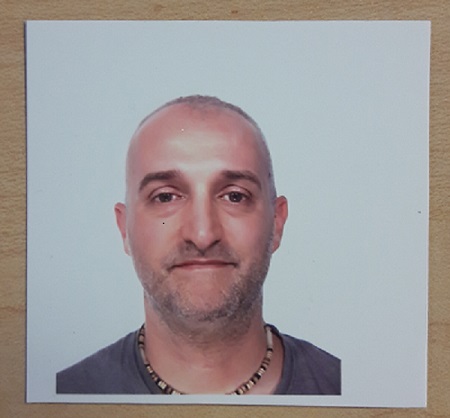Studying at the University of Verona
Here you can find information on the organisational aspects of the Programme, lecture timetables, learning activities and useful contact details for your time at the University, from enrolment to graduation.
Academic calendar
The academic calendar shows the deadlines and scheduled events that are relevant to students, teaching and technical-administrative staff of the University. Public holidays and University closures are also indicated. The academic year normally begins on 1 October each year and ends on 30 September of the following year.
Course calendar
The Academic Calendar sets out the degree programme lecture and exam timetables, as well as the relevant university closure dates..
| Period | From | To |
|---|---|---|
| Sem. IA (31.10.16 sosp.lezioni) | Oct 3, 2016 | Nov 12, 2016 |
| Sem. IB | Nov 14, 2016 | Jan 21, 2017 |
| Sem. IIA | Feb 27, 2017 | Apr 22, 2017 |
| Sem. IIB | Apr 24, 2017 | Jun 10, 2017 |
| Session | From | To |
|---|---|---|
| Sessione Estiva | Jun 12, 2017 | Jul 29, 2017 |
| Sessione Autunnale | Aug 21, 2017 | Sep 23, 2017 |
| Sessione Straordinaria | Jan 22, 2018 | Feb 24, 2018 |
| Session | From | To |
|---|---|---|
| Sessione Estiva | Jul 10, 2017 | Jul 15, 2017 |
| Sessione Autunnale - Servizio Sociale | Nov 10, 2017 | Nov 10, 2017 |
| Sessione Invernale | Mar 23, 2018 | Mar 29, 2018 |
| Period | From | To |
|---|---|---|
| Festa di Ognissanti | Nov 1, 2016 | Nov 1, 2016 |
| Festa dell'Immacolata | Dec 8, 2016 | Dec 8, 2016 |
| Vacanze di Natale | Dec 23, 2016 | Jan 6, 2017 |
| Vacanze pasquali | Apr 14, 2017 | Apr 18, 2017 |
| Festa della Liberazione | Apr 25, 2017 | Apr 25, 2017 |
| Festa dei Lavoratori | May 1, 2017 | May 1, 2017 |
| Festa del Santo Patrono - San Zeno | May 21, 2017 | May 21, 2017 |
| Festa della Repubblica | Jun 2, 2017 | Jun 2, 2017 |
| Vacanze Estive | Aug 14, 2017 | Aug 19, 2017 |
Exam calendar
Exam dates and rounds are managed by the relevant Humanistic Studies Teaching and Student Services Unit.
To view all the exam sessions available, please use the Exam dashboard on ESSE3.
If you forgot your login details or have problems logging in, please contact the relevant IT HelpDesk, or check the login details recovery web page.
Should you have any doubts or questions, please check the Enrollment FAQs
Academic staff
 stefania.annechini@univr.it
stefania.annechini@univr.it
 roberto.dallachiara@univr.it
roberto.dallachiara@univr.it
 giorgia.decarli@univr.it
giorgia.decarli@univr.it
 annamaria.giarola@univr.it
annamaria.giarola@univr.it
 luciano.pasqualotto@univr.it
luciano.pasqualotto@univr.it
Povolo Luciana
 antonella.salvan@univr.it
antonella.salvan@univr.it
 carlo.soregotti@univr.it
carlo.soregotti@univr.it
 giorgio.zoccatelli@univr.it
giorgio.zoccatelli@univr.it
Study Plan
The Study Plan includes all modules, teaching and learning activities that each student will need to undertake during their time at the University.
Please select your Study Plan based on your enrollment year.
1° Year
| Modules | Credits | TAF | SSD |
|---|
2° Year activated in the A.Y. 2017/2018
| Modules | Credits | TAF | SSD |
|---|
3° Year activated in the A.Y. 2018/2019
| Modules | Credits | TAF | SSD |
|---|
A course to be chosen among the following| Modules | Credits | TAF | SSD |
|---|
| Modules | Credits | TAF | SSD |
|---|
| Modules | Credits | TAF | SSD |
|---|
A course to be chosen among the followingLegend | Type of training activity (TTA)
TAF (Type of Educational Activity) All courses and activities are classified into different types of educational activities, indicated by a letter.
Clinical Psychology (2018/2019)
Teaching code
4S00775
Teacher
Coordinator
Credits
6
Language
Italian
Scientific Disciplinary Sector (SSD)
M-PSI/08 - CLINICAL PSYCHOLOGY
Period
Sem. 1A, Sem. 1B
Learning outcomes
The course aims to face the theoretical and methodological peculiarities which characterize psychology as a clinical discipline. Elements of psychopathology and clinical diagnosis will be provided, deepening verbal and nonverbal aspects of clinical and educational interaction. At the end of the course the student will have acquired: basic knowledge of clinical psychology tools; knowledge and understanding of different theoretical approaches in clinical psychology; knowledge and understanding of key concepts of psychopathology and basic elements of psychopathology in the life cycle; wider competencies on communication and relationship tools to improve communication skills with clients; ability to understand and use the technical language of clinical psychology.
Program
Evolution and definition of clinical psychology
Methodological challenges in clinical psychology and the analysis of the application
Instruments of clinical psychology
Verbal and non-verbal communication, instruments for effective communication, emotion and difficult interactions
Elements of psycho-diagnosis in developmental age
Elements of psycho-diagnosis in adult age
Description of the psychological and psychotherapeutic approaches in clinical psychology:
Psychoanalysis
Behaviourism
Cognitive therapy
Humanistic approach
Systemic approach
| Author | Title | Publishing house | Year | ISBN | Notes |
|---|---|---|---|---|---|
| Sanavio Ezio; Cornoldi Cesare | Psicologia clinica, 3 ed. (Edizione 3) | Il Mulino, Bologna | 2017 |
Examination Methods
Written examination lasting 1 hour and half (multiple choice and open questions).
The exam will test the whole course programme, including the reference book and the slides.
The exam will be the same for attending and non-attending students.
ERASMUS students are kindly asked to contact the teacher at the beginning of the course in order to agree the assessment test.
Type D and Type F activities
Modules not yet included
Career prospects
Module/Programme news
News for students
There you will find information, resources and services useful during your time at the University (Student’s exam record, your study plan on ESSE3, Distance Learning courses, university email account, office forms, administrative procedures, etc.). You can log into MyUnivr with your GIA login details: only in this way will you be able to receive notification of all the notices from your teachers and your secretariat via email and soon also via the Univr app.
Student mentoring
Linguistic training CLA
Gestione carriere
Practical information for students
Documents
| Title | Info File |
|---|---|
|
|
pdf, it, 325 KB, 02/05/23 |
|
|
pdf, it, 212 KB, 02/05/23 |
|
|
pdf, it, 131 KB, 02/05/23 |
Graduation
Documents
| Title | Info File |
|---|---|
|
|
pdf, it, 99 KB, 13/10/23 |
|
|
pdf, it, 101 KB, 10/04/24 |
List of theses and work experience proposals
| theses proposals | Research area |
|---|---|
| Proposta tesi | Various topics |
Assistente Sociale
Comune e Università di Verona collaborano per la formazione alla professione di assistente sociale.
Professione Assistente Sociale
Pagina aggiornata il 18/1/2022
Stage e Tirocini
Le attività̀ di tirocinio degli studenti si svolgono presso strutture esterne, convenzionate con l’Università degli Studi di Verona ai sensi delle vigenti disposizioni in materia. Nelle strutture esterne gli studenti svolgono le attività di tirocinio sotto la responsabilità di un assistente sociale (Tutor-supervisore), appartenente a dette strutture, coordinato a sua volta dal responsabile del tirocinio presso il Corso di Studio.
In assenza di un assistente sociale, operante nella struttura esterna, il Collegio didattico, per quanto di competenza, decide, su proposta dei responsabili del tirocinio, in ordine alle condizioni per l’effettuazione o la prosecuzione delle attività di tirocinio degli studenti interessati. Le attività di tirocinio sono obbligatorie per almeno 450 ore.
Il Collegio didattico, in deroga alle disposizioni del presente articolo, può consentire a studenti che si trovino in particolari condizioni, in specie se disabili, lavoratori o impegnati in organismi collegiali dell’Università degli Studi di Verona, di non ottemperare in parte all’obbligo di frequenza alle attività di tirocinio, predisponendo forme alternative di tirocinio, anche tramite supporti telematici e multimediali interattivi.
I responsabili delle attività di tirocinio presso il Corso di Studio, anche avvalendosi di appositi collaboratori o tutori esterni, accertano la presenza degli studenti presso le rispettive strutture. A tal fine utilizzano un apposito libretto di frequenza per ciascuno studente.
Al termine dell’attività di tirocinio, lo studente deve presentare una relazione scritta al responsabile di tale attività presso il Corso di Studio. Lo studente elabora la relazione scritta, controfirmata dal Tutor-supervisore. La relazione finale viene valutata dal responsabile del tirocinio presso il Corso di Studio e deve tenere conto degli obiettivi prefissati dal Collegio didattico.
La valutazione viene attribuita al tirocinio nel seguente modo: sufficiente = 1; buono = 2; ottimo = 3; eccellente = 4 e verrà aggiunta alla media dei voti del curriculum al momento della discussione della tesi.
Gli Uffici della Direzione Didattica e Servizi agli Studenti predispongono la documentazione necessaria allo svolgimento delle attività̀ di tirocinio, comprese attestazioni e certificazioni.
Nel caso in cui lo studente partecipi a programmi di mobilità internazionale, le attività̀ di tirocinio vengono regolamentate come segue:
A – Lo studente svolge il Tirocinio presso la sede estera.
Se lo studente svolge il Tirocinio all’estero si ritengono assolti gli obbligo relativi al Laboratorio se:
- - lo studente aggiorna il proprio docente/tutor con brevi relazioni mensili da inviare mezzo mail, sull’andamento del lavoro svolto presso la sede estera;
- - produce una relazione finale completa del tirocinio svolto.
La valutazione finale del laboratorio di guida al tirocinio sarà̀ effettuata da parte del tutor del laboratorio sulla base della relazione dello studente tenendo conto della eventuale valutazione da parte del supervisore estero.
B – Lo studente non svolge il Tirocinio presso la sede estera.
Se lo studente non svolge il Tirocinio nella sede estera e lo deve fare al rientro:
lo studente effettua uno/due incontri individuali iniziali con il docente/tutor in cui predisporre quanto necessita per l’avvio del tirocinio e nei quali verranno forniti materiali, griglie ed eventuali testi di riferimento;
invia brevi relazioni mensili sull’andamento del tirocinio che sarà svolto in Italia al di fuori del periodo in cui si tiene il laboratorio di guida al tirocinio;
produce la relazione finale completa del tirocinio svolto”.
- Tutte le informazioni in merito agli stage per futuri studenti sono disponibili alla pagina Stage e tirocini.
- Tutte le informazioni in merito agli stage per studenti iscritti sono pubblicate in MyUnivr - come fare per - stage e tirocini.
- Tutte le informazioni in merito agli stage per le aziende sono disponili alla pagina Stage e tirocini per azienze.

 045/802.8621
045/802.8621




















